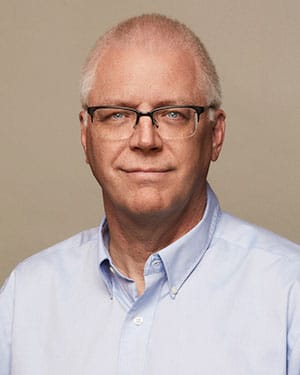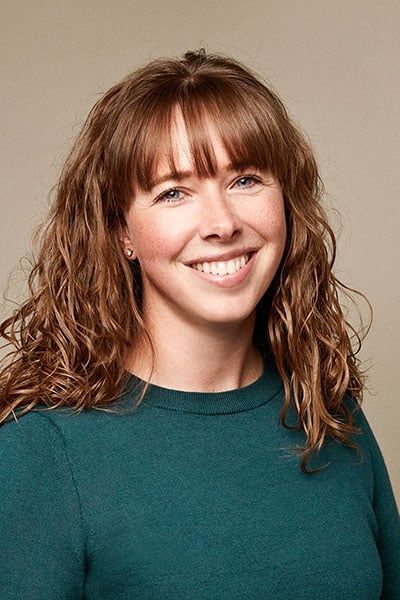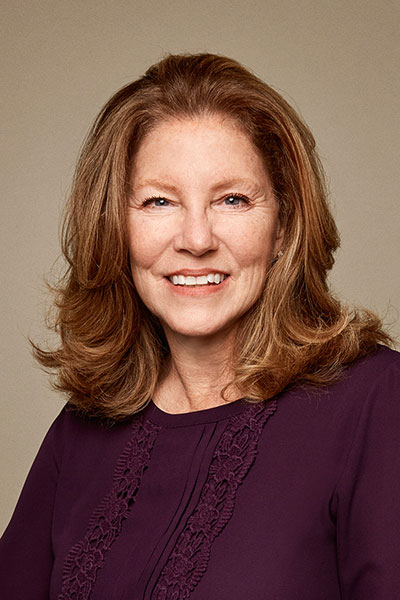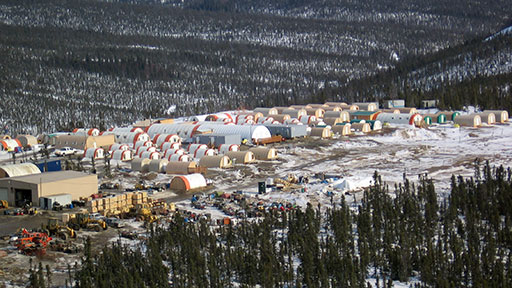Owl Ridge has highly skilled, experienced professionals capable of supporting all regulatory planning, permitting, and compliance requirements for natural resource development, recreational development, and land use planning.
Although Owl Ridge is a young company, each member of our senior staff has at least 20 years of experience in his or her field of expertise. In addition, they have practical experience in project management, business management, and client relations. Owl Ridge clients benefit from the diverse expertise and experience of our staff.
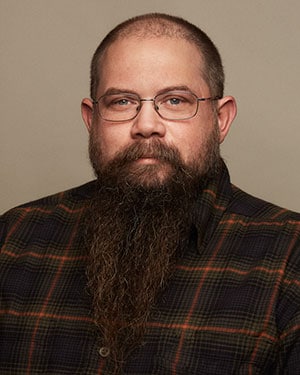 William (Bill) Morris President
William (Bill) Morris President
Fisheries Biology and Aquatic Ecology
MS, Biological Sciences, University of Alaska, Fairbanks
BS, Wildlife Biology, University of Alaska, Fairbanks
BS, Biological Sciences, University of Alaska, Fairbanks
Bill Morris is a fisheries biologist and aquatic ecologist with over 25 years of experience working in the Arctic and Interior Alaska. He has extensive experience in the design, implementation, analysis, and reporting of aquatic baseline and biomonitoring data collection programs, including collecting and analyzing fish heavy metals loading data. Bill previously worked for the Alaska Department of Fish and Game (ADF&G), Division of Habitat in Fairbanks for 19 years, implementing, enforcing, and conducting compliance inspections associated with permits issued under the Fishway and Anadromous Fish Acts. He has extensive experience with State of Alaska Special Area permitting and compliance, as well as coordinating environmental evaluation of industrial projects in northern Alaska. His experience includes three years as Regional Supervisor for the ADF&G Northern Region, Division of Habitat. Bill has authored and/or coauthored more than 30 ADF&G publications and he has been a technical reviewer for multiple agency and professional journals.
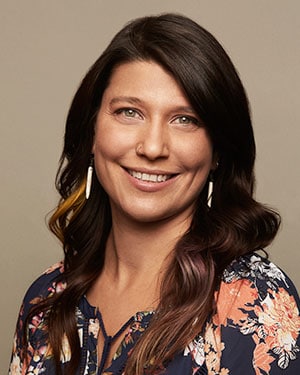 Megan Blees Vice President
Megan Blees Vice President
Marine/Wildlife Resources, Permitting, Regulatory Compliance, PSO Program Manager
MS, Marine Mammal Science, University of St. Andrews, Scotland
BS, Biology, University of Nevada, Reno
Megan Blees has 20 years of experience in marine and terrestrial research, regulatory, and compliance programs. She has conducted onshore mammal and bird surveys, marine mammal telemetry, Cook Inlet beluga whale photo-identification, vessel and aerial line-transect surveys, land- and vessel-based marine mammal monitoring, sea ice composition studies, habitat evaluations and restoration, and wetland delineation. Her experience in Alaska has largely focused on providing marine mammal expertise and regulatory compliance support for onshore and offshore oil and gas exploration and development, construction, and subsea cable installation. Megan has written successful applications for IHAs and LOAs, managed compliance with these applications and developed supporting documents for project planning including BAs, Wildlife Interaction Plans, Plans of Cooperation, and Marine Mammal Monitoring and Mitigation Plans. Megan manages the Owl Ridge PSO Programs, which includes PSO training and often stakeholder engagement programs, for a variety of industries including offshore oil and gas exploration and operations, cable installation, and marine construction. Megan also has extensive experience permitting water use for clients operating on the North Slope and interior Alaska.
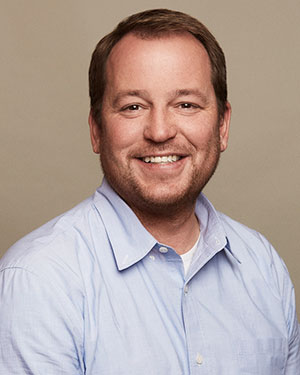 Paul Cartier Vice President
Paul Cartier Vice President
GIS Specialist, Database Management, Project Management
MS, Environmental Science, Alaska Pacific University
BS, Biology, University of Wisconsin, Stevens Point
Paul Cartier has 20 years of experience in development and management of GIS databases combining data from a wide range of environmental and engineering disciplines. Paul has coordinated data acquisition, designed and managed databases, and analyzed data for a variety of both linear and non-linear projects. His work has supported large- and small-scale onshore/offshore oil and gas projects, mining, transportation and communication infrastructure, transmission lines, and other land development projects. Paul effectively combines GIS process and workflows integrating data from the key project disciplines to aid and expedite project decision making from initial planning stages through completion. His environmental background allows him to understand the context of important key project issues and employ the GIS system to aid in overall effective planning and decision making.
 Glenn Ruckhaus Principal
Glenn Ruckhaus Principal
NEPA Analysis, Permitting, and Regulatory Compliance
BA, Geology, University of Colorado
Certified Professional Geologist
Glenn Ruckhaus has 35 years of experience in managing and evaluating natural resource and infrastructure projects throughout the western US and Alaska. His expertise focuses on whole project analysis and management to identify and resolve complex issues of environmental impacts, endangered species, critical habitat, public controversy, aboriginal affairs, and operational logistics. His work has contributed to successful regulatory approvals of projects in marine settings, national wildlife refuges, state game refuges, and other areas with identified critical habitat and endangered species issues. Glenn has extensive experience in conducting detailed planning and regulatory risk analyses that has expedited regulatory approvals, lowered controversy, and created greater operational flexibility.
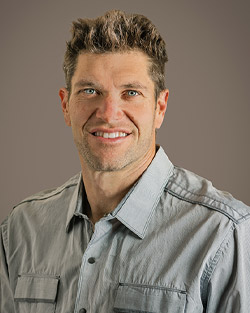 Jason McFarland Senior Scientist
Jason McFarland Senior Scientist
Fisheries Biology and Aquatic Ecology
MS, Biology and Wildlife, University of Alaska, Fairbanks
BS, Environmental Science, University of San Diego
Jason is a fisheries biologist and aquatic ecologist with 17 years of experience in aquatic and biological research and regulatory compliance and permitting throughout Alaska, the Pacific Northwest, and Intermountain West. Much of his work has involved implementing baseline studies of processes that govern freshwater-riparian productivity to support industrial projects. Mr. McFarland has managed and provided technical expertise for projects collaborating with state and federal agencies, including the Bureau of Land Management, Department of Transportation, US Forest Service, US Fish and Wildlife Service, Alaska Department of Environmental Conservation, Alaska Department of Fish and Game, California Department of Fish and Wildlife, and Colorado Parks and Wildlife, as well as a number of organizations in the private sector. He effectively designs, executes, and produces reports on a wide range of research, biomonitoring, and regulatory compliance projects to directly address client objectives. He is an FAA-certified commercial remote pilot and has used UAVs to conduct anadromous fish surveys, stream and riparian habitat assessments, site characterizations, reclamation efforts, and asset inspections. He has authored and/or coauthored more than 25 publications for scientific journals, universities, and industry. His field studies and research currently helps guide the management of fish, aquatic, and terrestrial habitat resources for proposed and existing land use and resource development projects in both Alaska and the Intermountain West.
Kate Lomac-MacNair Senior Scientist
Biologist, Marine Mammal Science
Ph.D., Marine Sciences, Marine Ecology CCMAR, University of Algarve, Faro, Portugal
MS, Environmental Science & Policy, Johns Hopkins University
BS, Environmental Sciences, Union Institued and University, Ohio
Kate Lomac-MacNair has over 18 years of experience as a biologist specializing in marine science, marine permitting, marine mammal research, marine mammal monitoring and mitigation, field project management, and marine survey design. Kate has provided technical support as a marine scientist for clients in the government, non-profit, and private sectors. She is experienced in and provides project support for survey design, marine industry planning, assessment of environmental impacts, permitting, monitoring, and mitigation. Additionally, she has experience in field project design and management; aerial survey design and management; environmental document and technical report writing, and preparing and implementing marine species research. Her expertise includes a strong understanding of the Marine Mammal Protection Act (MMPA), Endangered Species Act (ESA), National Environmental Policy Act (NEPA), and how they drive species welfare and management in relation to development, military, and industry activities. Kate has managed marine mammal observer (MMO) and protected species observer (PSO) teams and has participated in field surveys and data collection projects from shore, air, marine vessels, and in-water diving studies on marine mammals, sea turtles, birds, and coral. Kate completed her Ph.D. in 2022 at the University of Algarve in Faro, Portugal in the Marine Ecology program, focusing on Arctic marine mammal distribution and behavior.
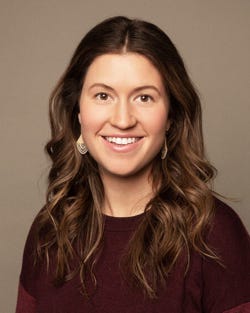 Morgan Bender Senior Scientist
Morgan Bender Senior Scientist
Fisheries Biology and Aquatic Ecology
Ph.D., Arctic Marine Ecotoxicology, The Arctic University of Norway
MS, Arctic Marine Systems Ecology, The Arctic University of Norway
BS, Fisheries, University of Alaska Fairbanks
BS, Biological Sciences, University of Alaska Fairbanks
Morgan Bender is a fisheries scientist and ecotoxicologist with international expertise in aquatics and ecology-related research, oil spills, toxicology, science communication, education, and remote logistics. Morgan has provided technical expertise for the oil and gas sector, the mining sector, Native corporations, and universities across the Arctic. She has authored numerous publications for scientific journals and books, taught university-level courses in biology, and presented at over 20 conferences. Prior to joining Owl Ridge in 2021, Morgan’s work as a postdoctoral fellow in Northern Norway focused on oil spill exposure and climate-driven effects on the physiology of marine fish using experimental methods. Since joining Owl Ridge she provides guidance and support for fisheries and environmental projects, data analysis and management, statistics, biological monitoring, knowledge synthesis, and effective science communication. Morgan holds a USCG commercial captain’s license.
David Cameron NEPA Practice Leader
Environmental Impact Analysis and Environmental Assessment
MS, Animal Ecology, University of Denver
BS, Biology, University of North Dakota
David Cameron has 39 years of experience leading large multidiscipline teams to conduct EIAs and prepare EISs and EAs in compliance with federal regulations, especially NEPA, as well as various state regulations. In addition, he has conducted and managed BAs for threatened or endangered species and BEs for Forest Service sensitive species, supporting various permit applications. Dave has managed and provided technical expertise for projects in the western US, Alaska, and Hawaii. Federal agencies he has worked with include Forest Service, BLM, U.S. Army Corps of Engineers, U.S. Army, U.S. Air Force, USFWS, Tennessee Valley Authority, BIA, EPA, NPS, FERC, Bureau of Reclamation, and Federal Highway Administration. Projects include oil and gas exploration and development, pipelines, coal and hard rock mines, reservoirs, resort development, incidental take permits for threatened or endangered species, vegetation management, transmission lines, telecommunication facilities, highways, and national defense systems.
Brooke Therrien Senior Scientist
NEPA & Regulatory
BS, Biology, University of British Columbia, Okanagan
Master’s Certificate, Environmental Permitting and Regulation, University of Alaska Anchorage
Brooke Therrien is an NEPA practitioner and regulatory specialist with 10 years of experience in leading environmental permitting, wetlands delineation, and NEPA documentation assignments. Her experience includes conducting research, performing fieldwork, managing permitting processes, preparing technical reports, and conducting public involvement for NEPA projects throughout Alaska. Brooke’s experience covers a range of public and private sector clients, transportation and bulk fuel projects, and applicable federal, state, and local laws. She uses her GIS expertise to develop graphics which support permit applications and public presentations.
Taylor Sullivan Senior Scientist
Marine/Wildlife Resources, Regulatory Compliance
BS, Zoology, University of Florida
Taylor Sullivan has over 18 years of experience as a zoologist specializing in protected species regulatory compliance programs, ethology, field project design, management and logistics, offshore marine mammal and bird surveys, monitoring and mitigation best management practices, marine wildlife telemetry, marine mammal photo-identification, and passive acoustic monitoring. Her Arctic field and management experience includes offshore energy and nearshore cable projects in Alaska’s Beaufort, Chukchi, and Bering Seas, as well as geophysical surveys in the Barents Sea Norwegian territory. She has diverse global experience with large-scale ocean energy industry projects providing marine mammal expertise and regulatory compliance support for: subsea cable installation; offshore oil and gas exploration and development; offshore liquefied natural gas pipeline siting, construction and maintenance; offshore wind energy development; and port basin and beach renourishment dredging. She has provided technical support to government, academic, and private sector clients in the design, implementation, analysis, and reporting of data collection programs; high-level government report writing, editing, data management and QA/QC; and advises on the design of monitoring and mitigation programs. She has taught marine mammal monitoring, identification, behavior, and ecology, as well as passive acoustic monitoring.
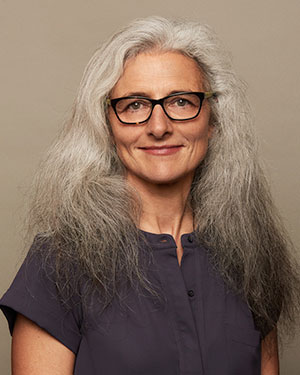 Susan Walker Senior Technical Editor / Office Manager
Susan Walker Senior Technical Editor / Office Manager
MS, Industrial & Organizational Psychology, University of Canterbury
BS, Psychology, University of Canterbury
Technical Writing Certification, Bellevue College
Susan Walker has over 20 years of professional experience in natural resources consulting. She has supported clients and projects as a technical writer and document editor, environmental planner, and permitting specialist. Susan’s experience includes preparing and editing feasibility studies, environmental reports, planning documents, and permit applications for mining, transportation, oil and gas, energy, and rural community infrastructure projects. Susan supports the writing, editing, and document production needs of Owl Ridge’s multi-disciplinary team of scientists and specialists, and serves as the human resources and administrative manager.
 Nicholas Rimelman Technician
Nicholas Rimelman Technician
BS, Fisheries, University of Alaska, Fairbanks (In Progress)
Nicholas is an experienced environmental technician with four years’ experience conducting field surveys across Alaska and in the central Rockies. Nick excels at following detailed protocols for diverse sampling methodologies including remote electroshocking surveys, fish presence and population research, biomonitoring projects, and aerial anadromous fish surveys. Along with working in the field, he manages and tracks internal and client assets. Nick supports data management, analysis, and synthesis for report writing and data deliverable needs. He is currently studying to become a biologist specializing in aquatic ecology and fisheries.
Molly Payne (she/her/hers) Scientist
Fisheries Biology and Aquatic Ecology
MS, Fisheries, University of Alaska Fairbanks
BS, Aquatic and Fishery Sciences, University of Washington
Molly Payne joined Owl Ridge in the spring of 2022 as a fisheries biologist with expertise in fisheries research and data science. In her previous work as a research fellow at the University of Alaska Fairbanks, she designed a modeling framework to integrate and analyze multiple datasets to address hatchery salmon management concerns on behalf of the Alaska Department of Fish and Game and private non-profit hatcheries in Southeast Alaska. Molly is skilled at performing field work in remote locations, managing and analyzing large datasets using statistical and version control software, and writing reports summarizing research results. Molly supports Owl Ridge clients in all aspects of a project, including logistics, field surveys, database QA/QC, data analysis, and report writing and editing. Molly is an AAUS scientific diver and Wilderness First Responder.
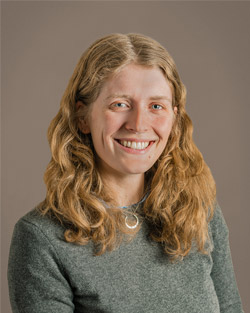 Ann Robinson Scientist
Ann Robinson Scientist
Fisheries Biology and Aquatic Ecology
BA, Natural Resources, Sewanee: The University of the South
Ann Robinson is a scientist with experience conducting environmental fieldwork in collaboration with clients throughout Alaska. She has experience in soil sampling and contaminated sites, completing SWPPPS, Environmental Baseline Studies, and Phase 1 ESAs. She has been involved extensive collaboration with clients, contractors, and state agencies. Her experience working in remote locations around Alaska brings a strong skillset to the field-based component of work at Owl Ridge. Since joining Owl Ridge, she has aided in equipment mobilization, maintenance, and field sampling programs. When not in the field, she helps manage large multiyear datasets, and synthesize fisheries and water quality data to craft annual reporting documents. Ann contributes to fisheries adaptive management planning documents, aquatic baseline and biomonitoring reports, and a variety of permitting applications. These projects have an emphasis on fish and wildlife biology, as well as regulatory compliance and permitting in aid of oil and gas, mining, and other infrastructure projects.
 Jack Hoggard Technical Support Specialist
Jack Hoggard Technical Support Specialist
BS, Computer Science, University of Alaska Anchorage
Jack Hoggard has more than one year of experience in managing databases and in data analysis. He is proficient in a variety of data management tools such as Microsoft Excel or Python for data analysis. He is proficient in coding languages such as Python, JavaScript, R, and several others and is currently studying computer science at the University of Alaska, Anchorage. Jack currently manages and tracks several internal/client databases and assists in tracking company assets.
Strategic Expertise
Dana Stotsky Senior Analyst
Regulatory Analysis, RCRA/CERCLA, EPA Process, Clean Water Act
JD, Environmental and Natural Resources Law, University of Oregon
BA, Biology and Environmental Studies, Whitman College, Washington
Member of the Bar of the State of Colorado
Dana Stotsky has 30 years of experience in environmental compliance, enforcement, and policy. He has led numerous EIA and EIS projects, and has been a NEPA technical advisor and Quality Control reviewer. He provided legal and policy analysis, and was lead trial attorney for the U.S. EPA in civil enforcement actions against air, water, toxics and hazardous waste violators. He has been extensively involved in both civil and criminal enforcement of Section 404 of the CWA. Mr. Stotsky has supported projects in Cook Inlet and Southeast Alaska conducting regulatory risk management and due diligence related to site selection and historical waste management practices for new oil and gas production facilities. Dana was Adjunct Professor for Navajo Technical College (New Mexico) where he taught part of the “Tribal Advocate” curriculum. He was also Adjunct Professor at University of Colorado Graduate School where he taught portions of “Field Techniques in Environmental Assessment.”
Mike Stanwood Senior Analyst
Socioeconomics and NEPA Expert
MS, Mineral Economics, Colorado School of Mines
BA, Psychology, University of Colorado
Mike Stanwood is a senior environmental, socioeconomic, and NEPA practitioner with 25 years of experience. He has lead more than 100 NEPA projects for both the private and public sector. He has extensive experience in planning and managing complex projects involving natural resource development, environmental planning, and permitting/compliance. He has developed collaborative public involvement processes and facilitated many public meetings. His environmental experience has primarily involved resource development (energy, mining, water), transportation, and government analyses. Mike has served on numerous panels and presented workshops and training sessions involving environmental law, regulatory issues, public policy initiatives, and environmental leadership. He is also has been an adjunct professor at the University of Denver where he taught courses in environmental leadership, natural resource planning and management, policy analysis, and sustainability.
Recently Retired
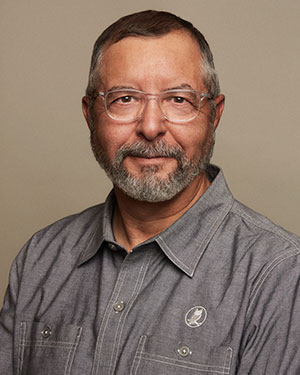 Gregory Green Ecological Practice Leader
Gregory Green Ecological Practice Leader
Wildlife Ecology, Endangered Species Act / Marine Mammal Protection Act Compliance
MS, Wildlife Ecology, Oregon State University
BS, Biology, Eastern Oregon University
Gregory Green has 40 years of experience planning and conducting both marine and terrestrial wildlife population and habitat projects in the Pacific Northwest and Alaska, with particular emphasis on threatened and endangered species, marine mammal and seabird surveys, forest and shrub-steppe ecology, natural resource management and mitigation plans, NEPA, and FERC relicensing of hydroelectric power facilities. He has managed more than 70 BAs/BEs and over 20 IHA applications. Greg has addressed environmental impacts from a variety of activities including: port and ferry terminal expansion, mine development through closure, offshore oil and gas exploration and development, gas pipeline siting and construction, onshore and offshore wind energy development, military base operations, hazardous waste cleanup, parks and marinas, hydroelectric projects, transmission lines, and commercial fishing. In addition, Greg teaches courses on ESA and MMPA compliance, marine mammal identification and ecology, and marine mammal monitoring. He has been an associate editor for three different scientific journals.

